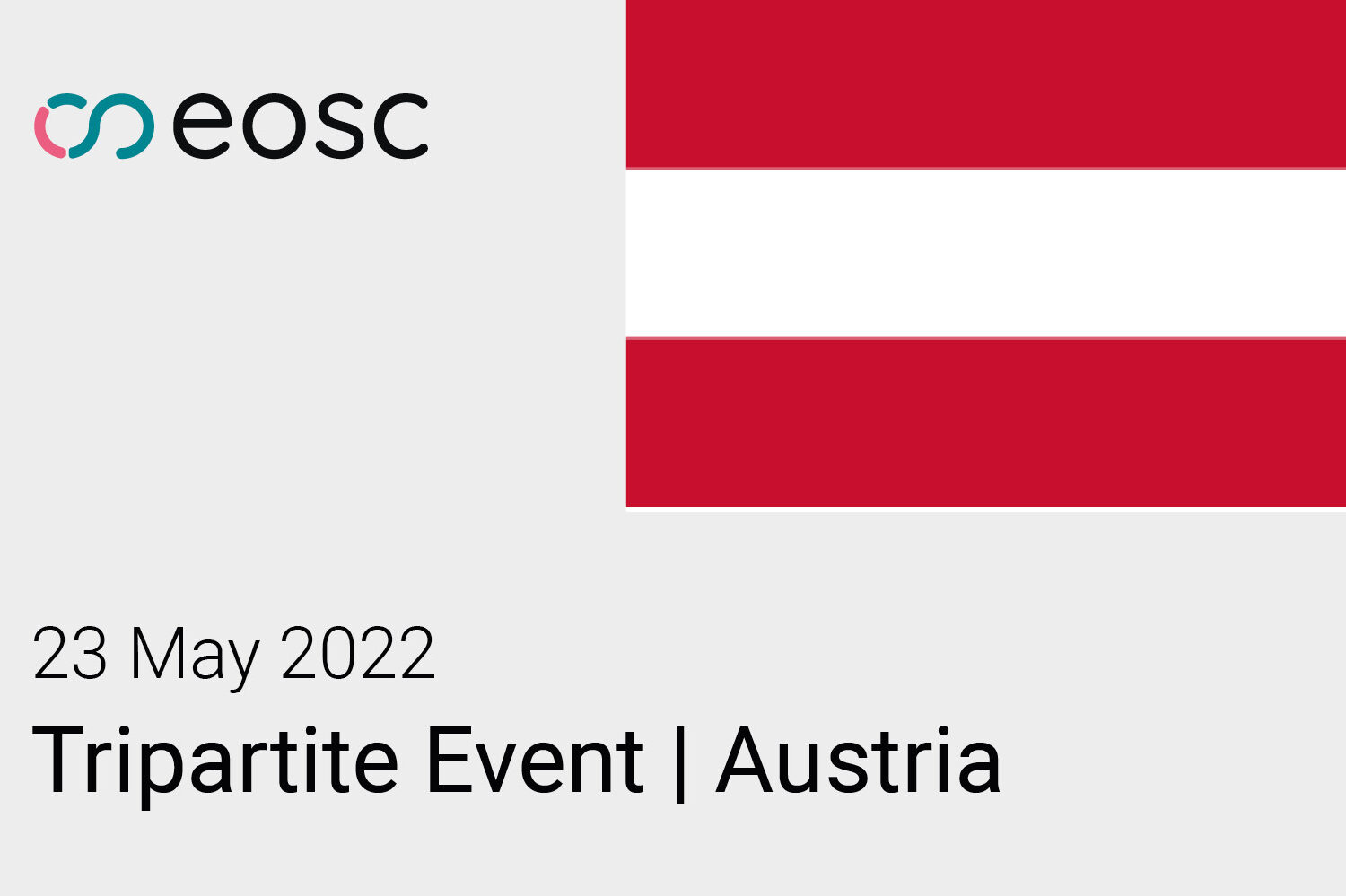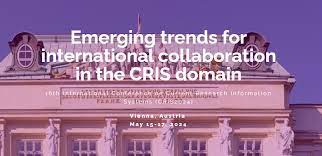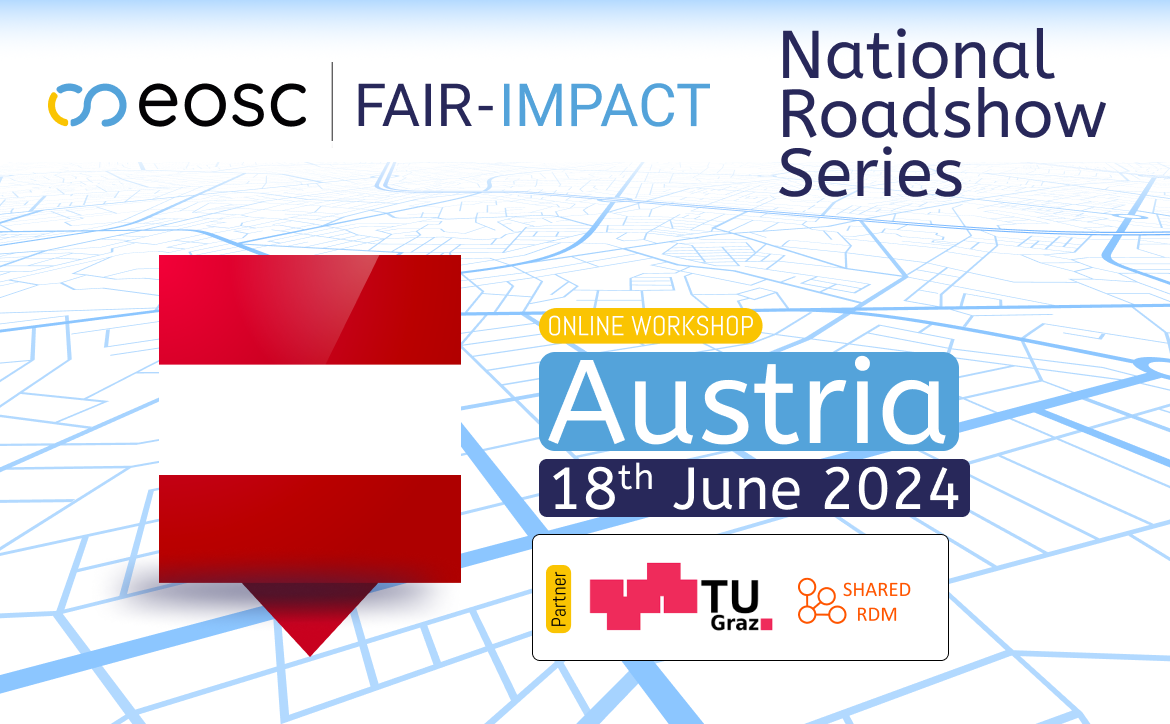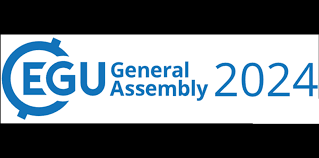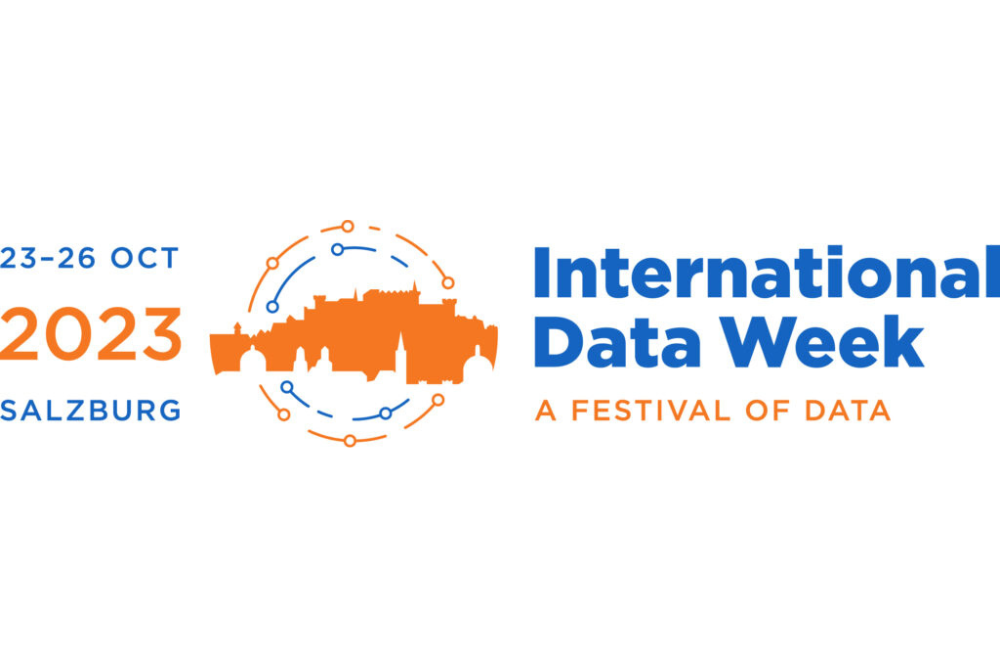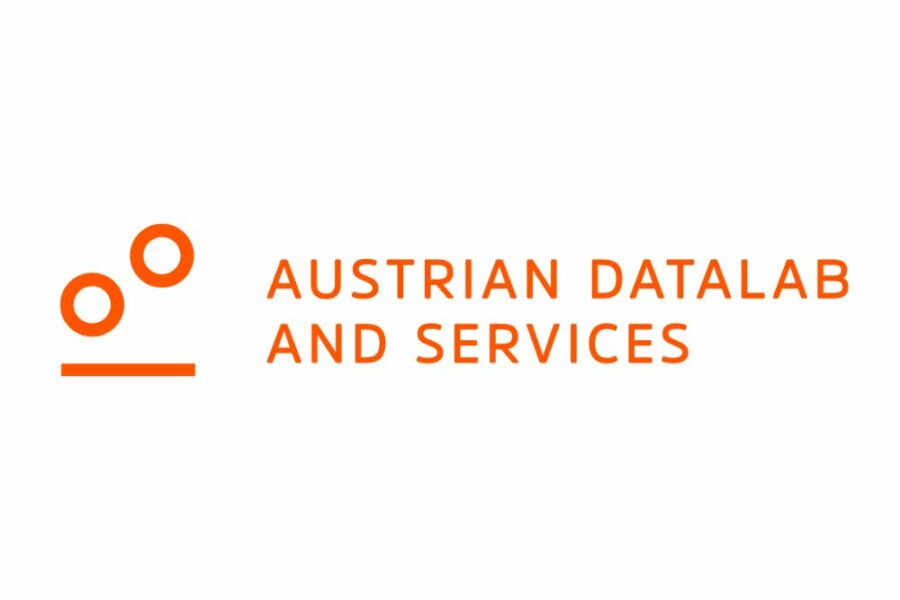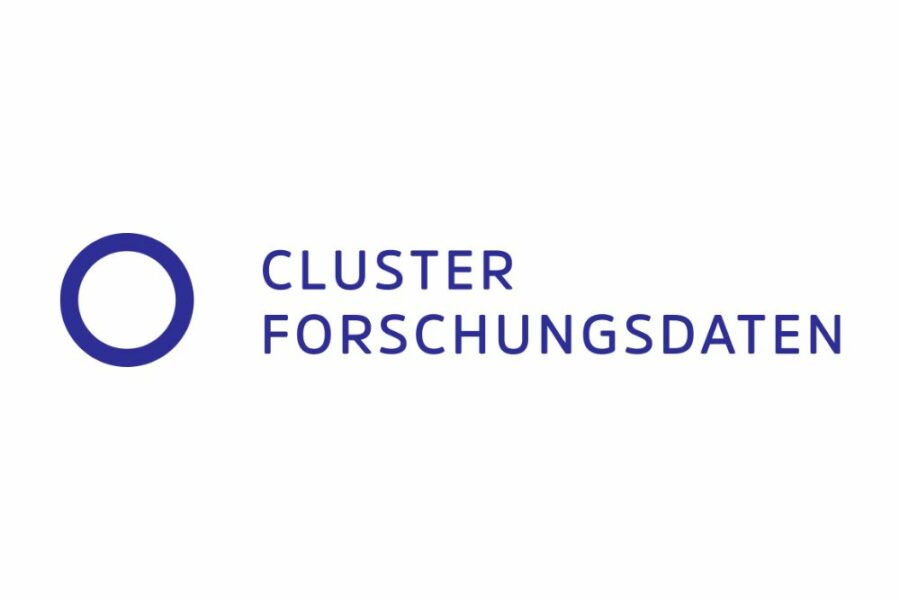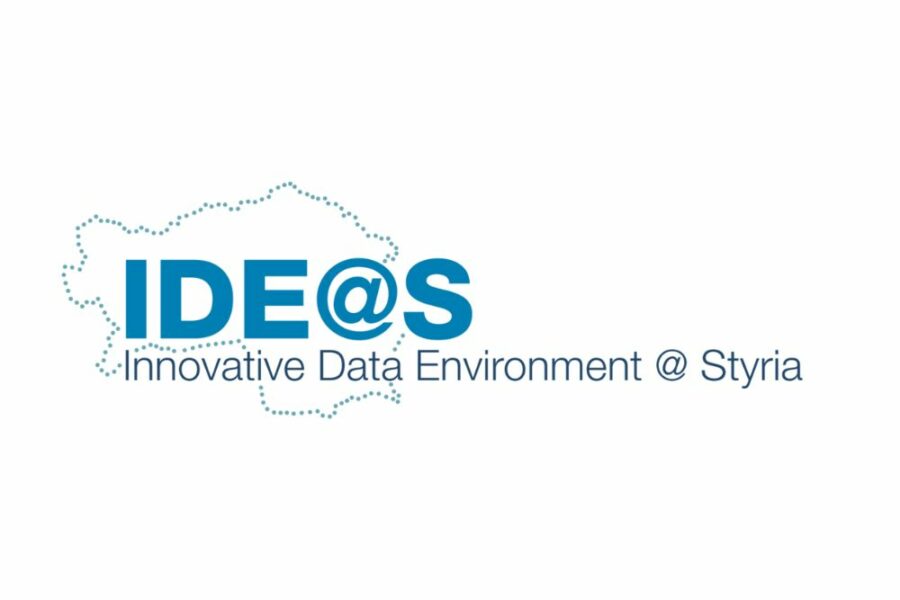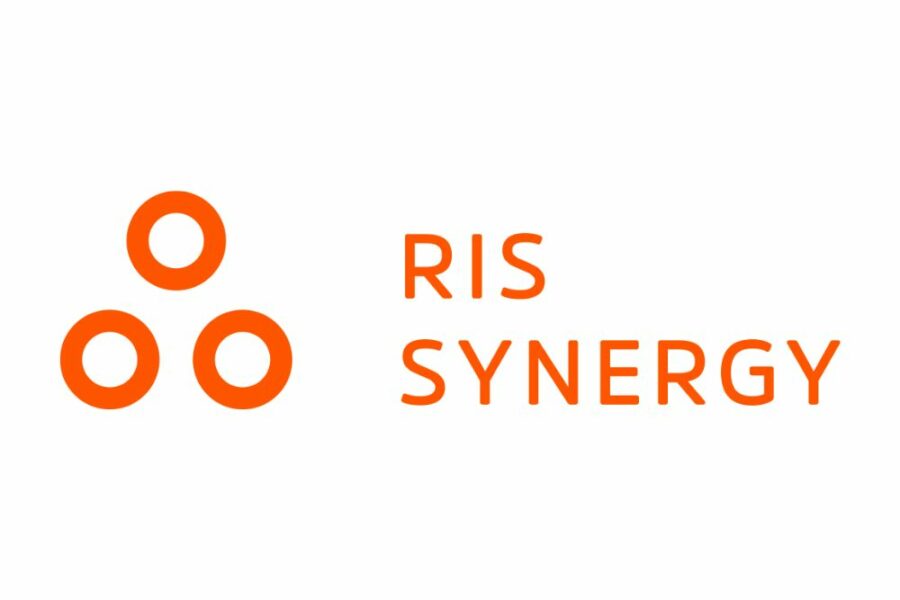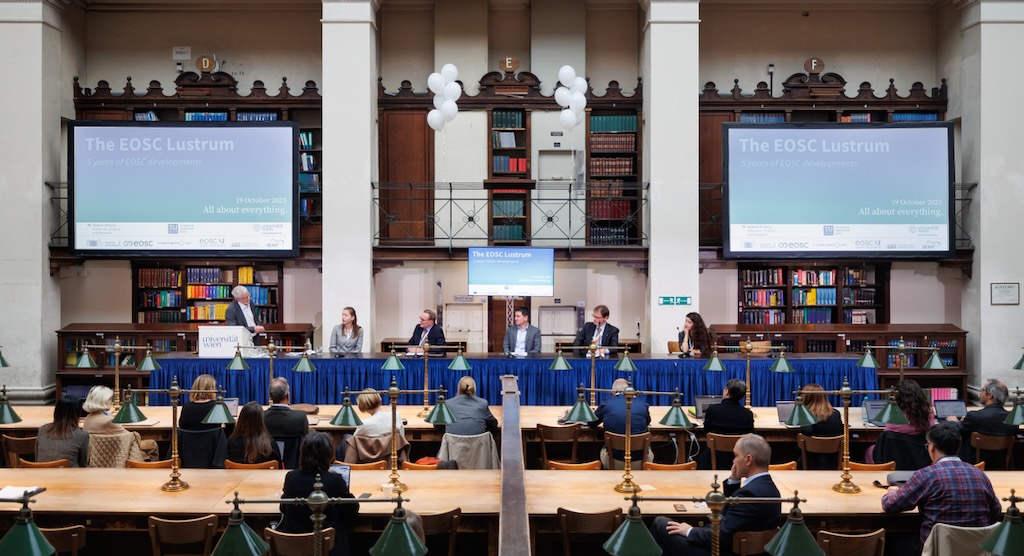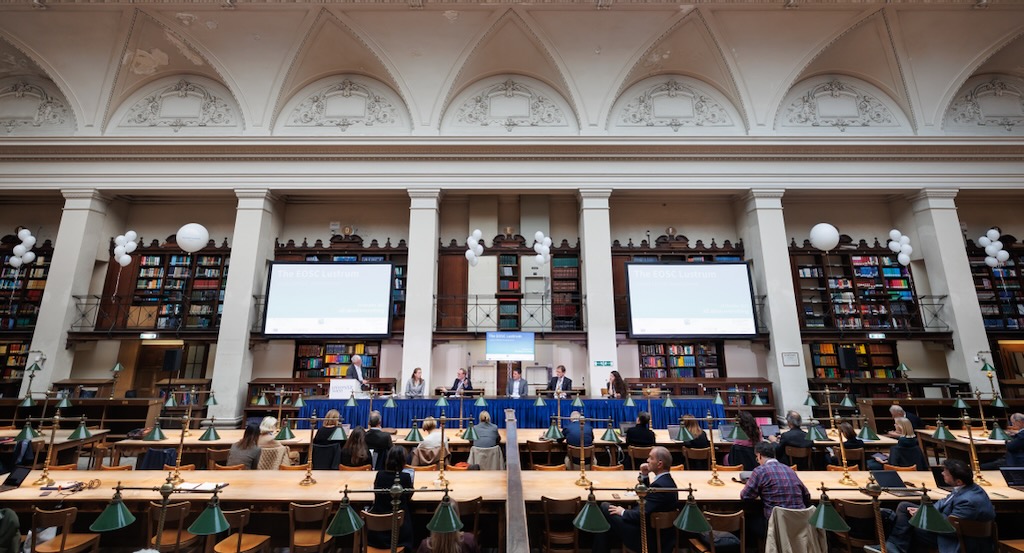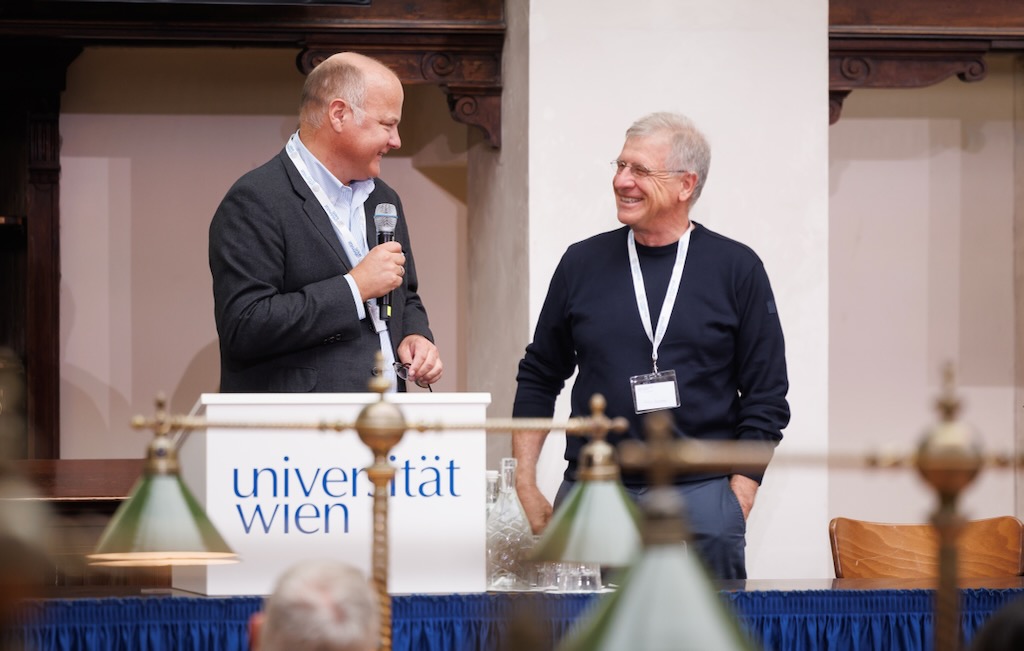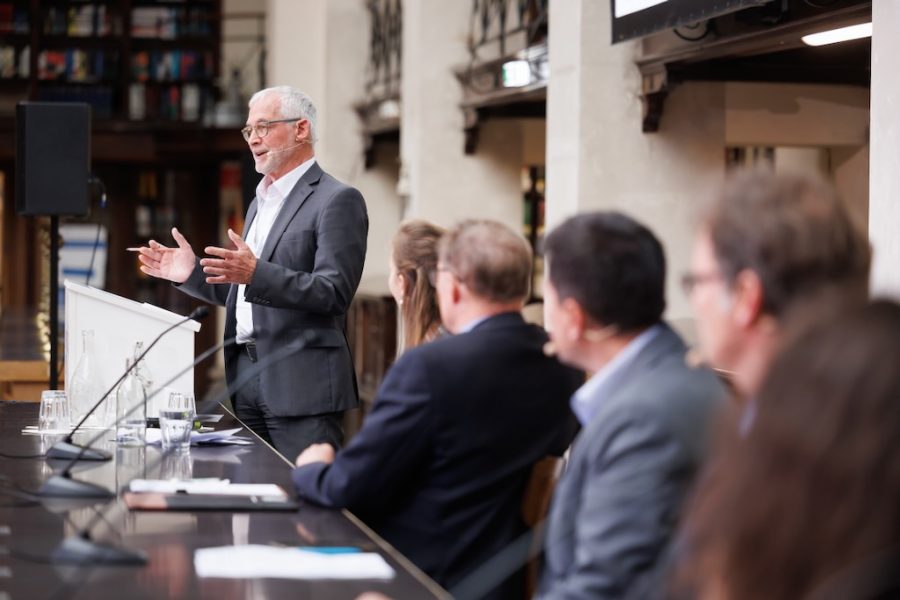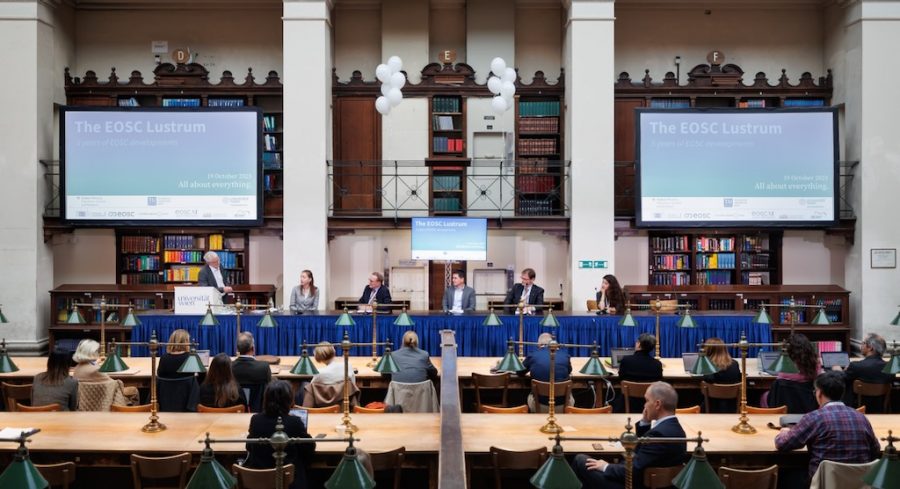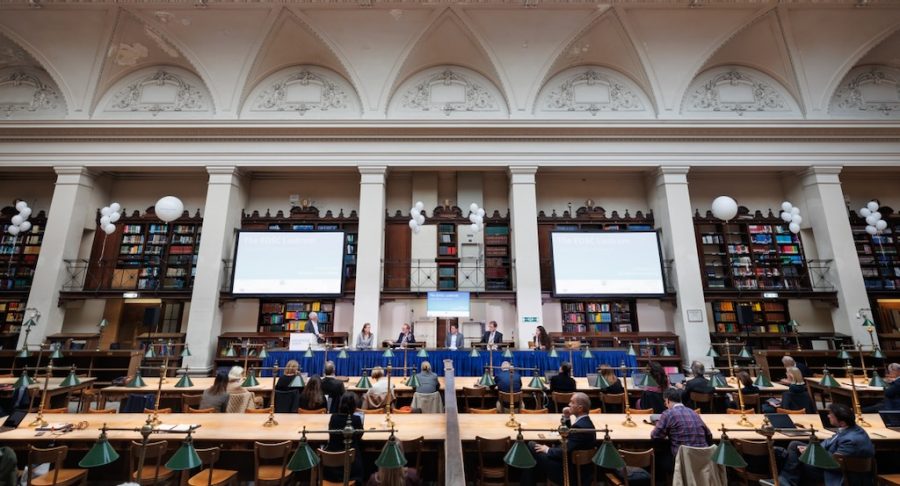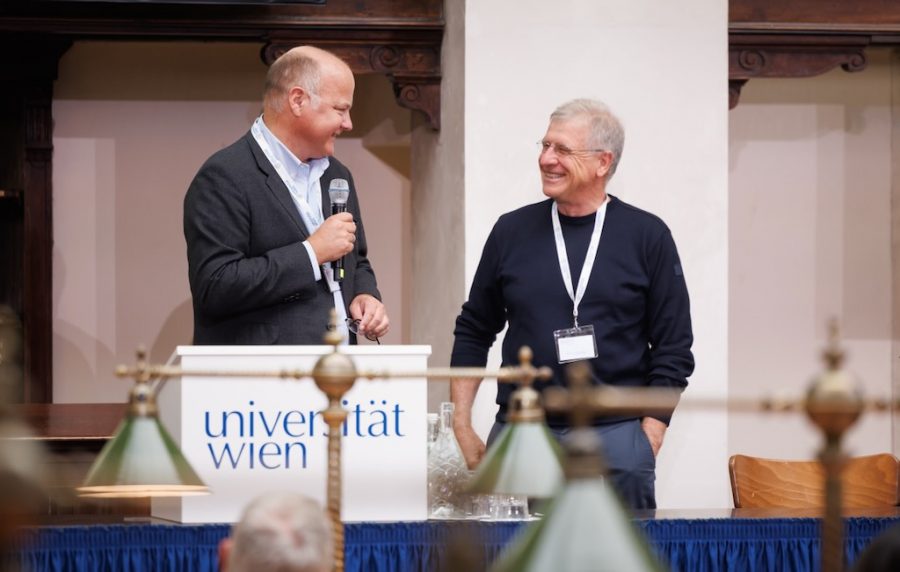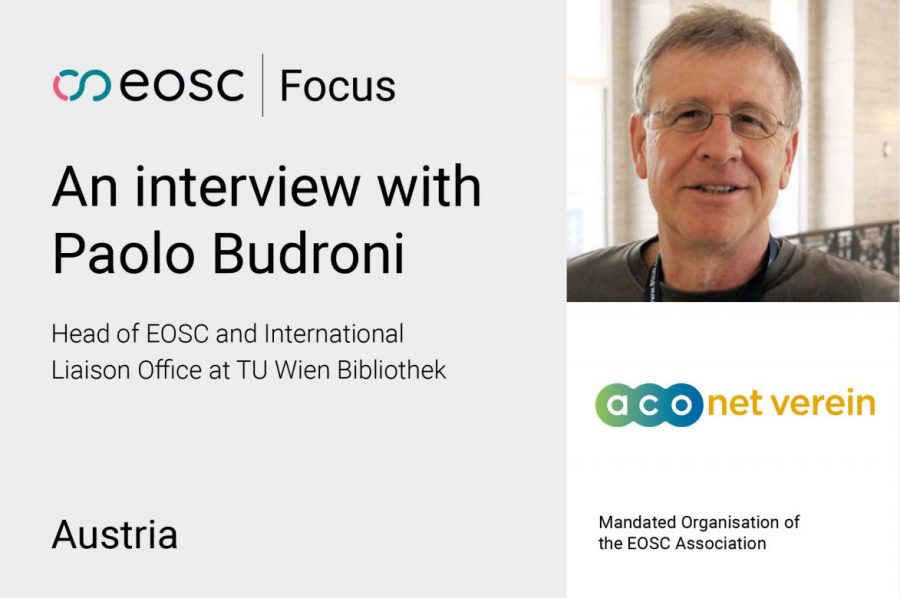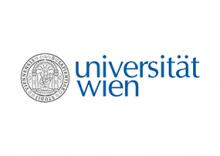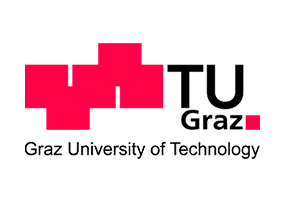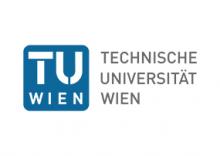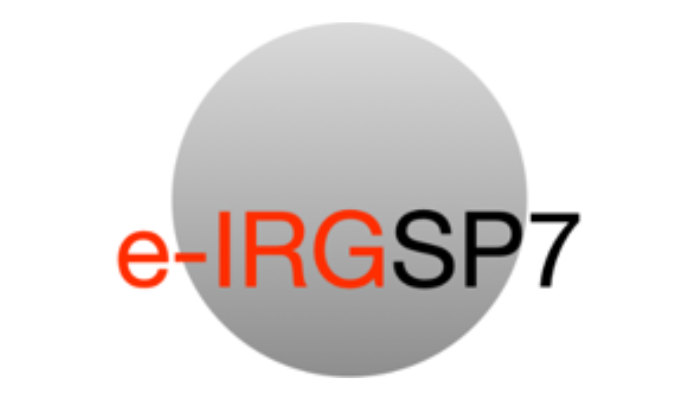
Austria
Overview
European Commission
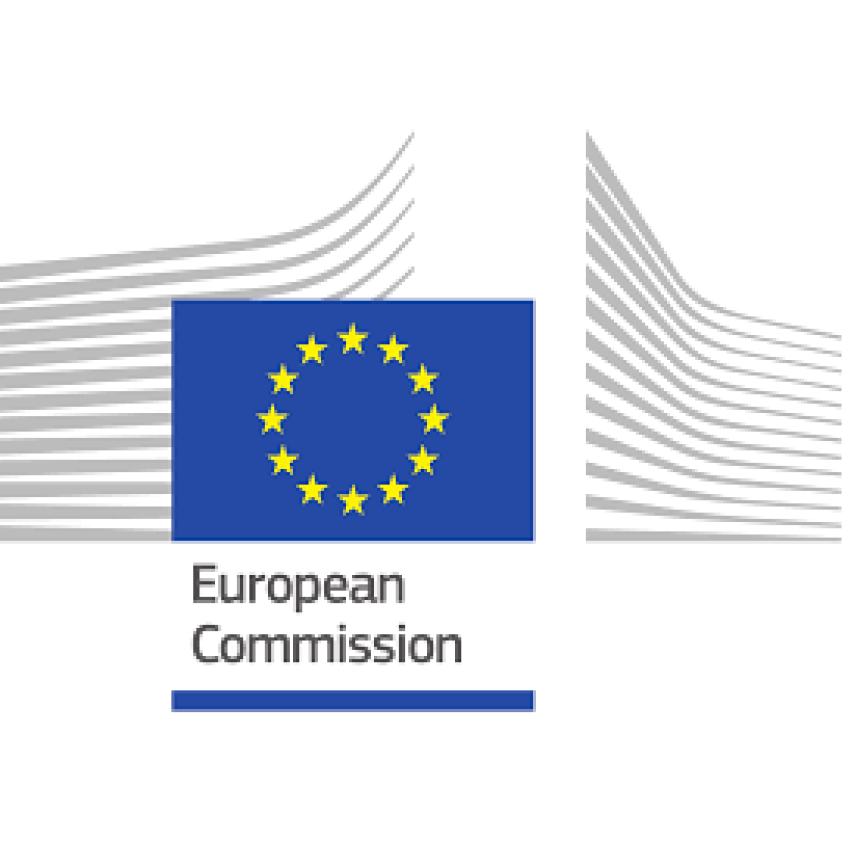

Mandated Organisation
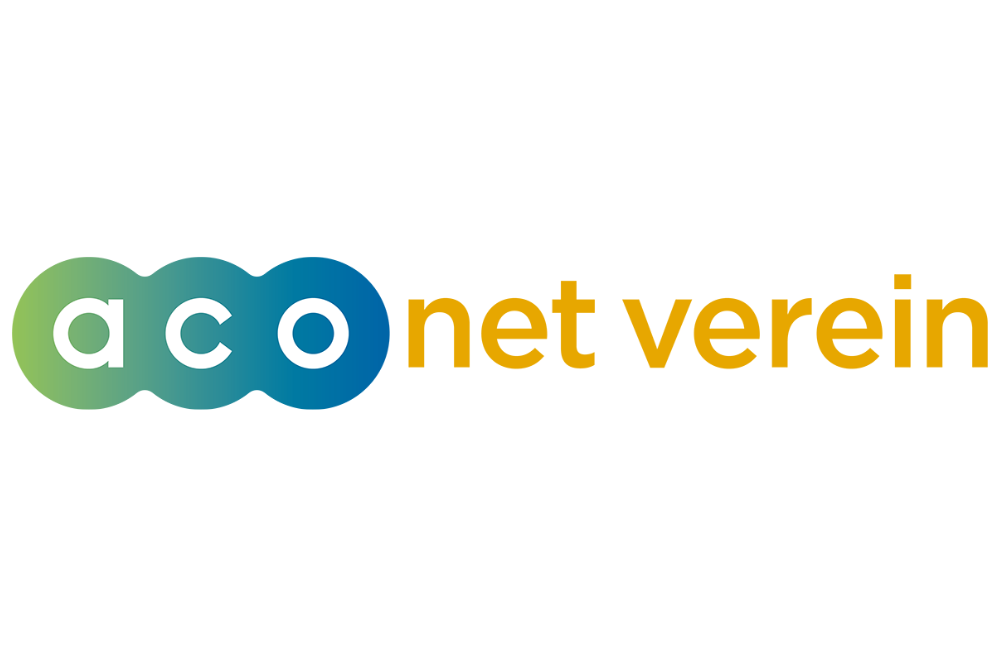

EOSC Steering Board representatives
Austria has put in place the necessary organisational structures and funding from national sources for a full implementation of Open Science on all levels of its research activities. Its major universities and research performing and funding organisations have joined forces in various networks and consortia, with the EOSC Support Office Austria (EOSC SOA) as a very active operational unit of the ACONET Association, the country’s Mandated Organisation. Together, the members of EOSC SOA strive for a coordinated development of the Austrian Open Science Policy and EOSC goals.
ACONET Association
The ACONET Association [1] is the signatory of the Memorandum of Understanding with the EOSC Association and thus the Austrian EOSC Mandated Organisation. To carry out the work this entails towards the implementation of EOSC, however, ACONET Association has created a dedicated body, the EOSC Support Office Austria (EOSC SOA). ACONET Association’s role can therefore be understood as legal representative with no operational plans or executive power over the specific EOSC-related tasks in Austria in which its members may be involved. This is done by the EOSC SOA, whose members include all leading Austrian research performing organisations. Founded in 2021, EOSC SOA thus acts as the coordinator of EOSC activities in the country and as closest link to the EOSC Association. Its operational goals translate those of the EOSC Association into the national context. Contact: Prof Dr Andreas Rauber (rauber@ifs.tuwien.ac.at)
Despite its short existence, EOSC SOA has managed to achieve an identifiable division of roles thanks to structured working methods and a clear information infrastructure. Several of its members are currently involved in Horizon Europe consortia (EOSC Focus, SKILLS4EOSC and e-IRGSP7) to develop and implement EOSC. Contact: Tereza Kalova (tereza.kalova@univie.ac.at)
A further recent initiative is the platform created in 2021 by the Austrian University Conference (uniko), called Open Science Austria. Its goal is to keep members up to date about the evolving Open Science landscape in Europe and beyond through strategy papers that enables to make informed decisions. Contact: Lola Karner, Officer for OSA (lola.karner@uniko.ac.at)
Austria also counts with several national generic and discipline-specific e-infrastructures and services, including repositories for data and publications, high performance computation clusters, etc. (a full list as of 2023 can be found in the Appendixes of the Austria Country Profile Q4/2023). Many of them are linked to EU-wide initiative and projects through various projects and networks.
[1] Not to be confused with the National Research and Education Network (NREN) ACOnet, funded by the BMBWF within the framework of the ACONET Association in 1990 under the responsibility of TU Wien. Since 1992, ACOnet has been operated by the University of Vienna.
National Events
National Tripartite Event Austria
The Austrian Federal Ministry of Education, Science and Research served as host to the very first EOSC National Tripartite Event, held in Vienna on Monday afternoon, 23 May. The hybrid event, EOSC-Café-AT, featured an exchange of...
Policies
Austria’s Open Science Policy was adopted on 23rd February 2022 after a discussion period of around two years that included consultation with various stakeholders, including the Federal Ministries of Education, Science and Research (BMBWF), Digitisation and Business Location (BMDW), and Climate Action, Environment, Energy, Mobility, Innovation and Technology (BMK). The Policy follows the Open Data and Public Sector Information Directive (EU 2019/1024), and is based on the principles of providing rewards and incentives to the adoption of Open Science practices, defines indicators for its implementation, establishes links to EOSC, and includes sections on FAIR data, research integrity, skills and education, and citizen science.
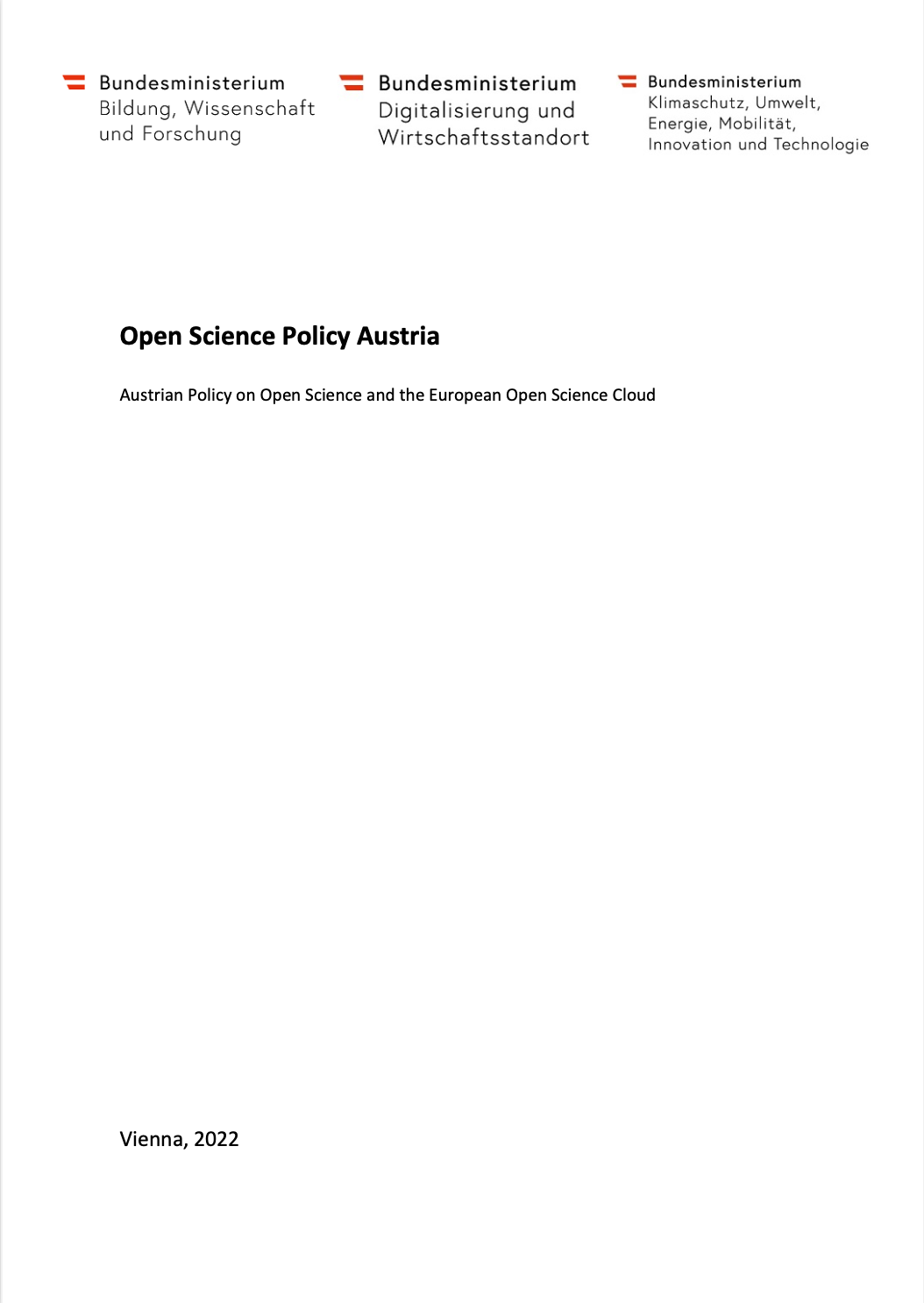

Open Science Policy Austria: Austrian Policy on Open Science and the European Open Science Cloud
Download nowEOSC in Practice
Embracing the principles of transparency, reproducibility, and accessibility, these examples highlight the innovative approaches adopted by researchers across various disciplines. From open data sharing and collaborative platforms to pre-registration and open peer review, these practices enhance scientific integrity and contribute to the advancement of knowledge.
People
- Interview at EOSC-A General Assembly, May 2023, Brussels
Paolo Budroni
ACONET verein
-
The EOSC Lustrum: 5 years of EOSC developments
Vienna University Library, Vienna Austria 19 October 2023
News from Austria
Members and Observers from Austria
EU Projects
Please find here the EOSC-related projects where members from this country are involved as partners.










































